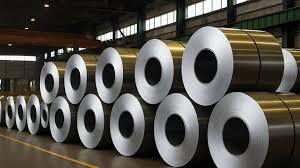- Home
- msme
- India to Speed Up BIS Clearance for Taiwanese Steel Plants After MSMEs Raise Concerns Over Delays
India to Speed Up BIS Clearance for Taiwanese Steel Plants After MSMEs Raise Concerns Over Delays

KNN
msme
9/20/2025Shathamanyu
Firm plans new products, climate risk frameworks, and AI-driven solutions to support MSMEs and sustainable project development.
The Indian government is set to fast-track approvals from the Bureau of Indian Standards (BIS) for integrated steel plants
in Taiwan, following complaints from MSME importers about prolonged delays caused by India’s Quality Control Order(QCO).
According to officials from the Ministry of Steel, these approvals are being prioritised to ensure MSMEs can import intermediate
steel raw materials, add value locally, and boost exports.
Since the QCO came into effect on 13 June, all steel imports—including intermediate materials like stainless steel slabs and
cold/hot-rolled coils—must carry BIS certification.
This has impacted several Taiwanese plants, which claim to meet integrated steel mill standards but are still awaiting formal BIS
recognition. The lack of certification has delayed shipments, even for orders that have already been paid for.
MSME importers have said they are facing financial stress because Taiwanese steel is often their most affordable supply source,
while domestic steel prices remain high and cut into their profit margins. Many orders placed in July remain stuck without BIS
approval, disrupting production schedules.
Taiwan is one of India’s top suppliers of semi-finished and intermediate steel. According to the Steel Import Monitoring
System (SIMS), it typically ranks fifth or sixth among India’s finished steel import sources, after South Korea, China, Japan,
and Vietnam. Industry estimates suggest that nearly Rs 150 crore in advance payments by MSMEs are currently stuck because of these
certification delays.
In response, the steel ministry has started engaging with industry stakeholders to speed up BIS clearances for Taiwanese steel
plants, aiming to ease supply bottlenecks and revive stalled imports for MSMEs.
Recent news
Related News



MSMEs, startups urged to meet ₹50K cr defence exports target: MoS Defence
9/20/2025 Shathamanyu

IBA Convenes Dialogue With DFS, SIDBI, Banks & Industry Associations On Supporting MSMEs
9/20/2025 Shathamanyu